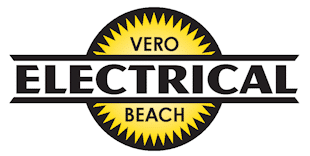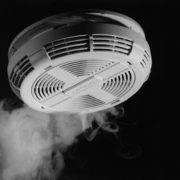Safety and Dollars: Why You Should Consider Upgrading Your Fuse Panel

1950 Chevy
I’ve been promising this post for several weeks. Hope you find it useful!
Maintaining electrical service with fuses is similar to driving a 1950 Chevy.
Why do I say that?
- A 60-amp electrical fuse panel is about the same age as a 1950 Chevy – it’s safe to assume a 60-amp fuse box is at least 50-years old
- Both the Chevy and the fuse box will work if maintained
- And, both the Chevy and the fuse box are missing functionality – some related to safety and some related to improved service. The old Chevy may still perform its basic function – moving you from point A to point B – but a 1950 Chevy is missing many safety enhancements such as anti-lock brakes, back-up camera, lane departure assist, airbags, and many other safety features too numerous to mention. The Chevy is also missing many enhancements which make life easier and more pleasant such as air conditioning, stereo radio, DVD players, cooled and heated seats, lumbar support, and much more
- Circuit breakers similarly have both safety benefits and improved functionality which I detailed in the blog on circuit breaker panels
If you’re still driving a 1950 Chevy, no one is going to require you to purchase a newer car. But that is not the case with an electrical service panel. Many home insurance companies now do a “four-point” insurance inspection before issuing a new or revised insurance policy – and one of the four points is a review of the electrical service.
Insurance companies must assess and mitigate their risks and, in fact, it benefits policy holders for companies to do so. We all want people to be safer in their homes. In addition, by reducing the risk of electrical injury and electrical fire, insurance companies reduce their overall costs. Lower costs means lower insurance premiums. Everyone benefits.
The four-point inspection required by insurance carriers covers:
- Heating, Ventilation, and Air Conditioning (HVAC)
- Electrical wiring and panels
- Plumbing connections and fixtures
- Roof
Four-point insurance inspections are becoming more prevalent. The following is from Citizens Insurance: “A four-point insurance inspection MUST be submitted with all applications for homes more than 30 years old (previously this requirement was for homes more than 50 years old.)”
What are insurance companies assessing? They’re looking at:
- Serviceable lifespan
- Current operating conditions
- Scheduled maintenance requirements
Specifically, they’re looking at the age of a panel and comparing that to its serviceable lifespan. With 50 years of non-stop use, a fuse panel’s equipment is out of date and at the end of its serviceable lifespan. Is it possible for the fuse panel to function for more than 50 years? Yes. Remember, the insurance companies are evaluating risk.
And, they’re looking at the risks I described in my blog on fuse panels, in which I pointed out that in many panels, the socket size is the same for all fuse amperages. This allows a 15-amp fuse to be replaced by a 20- or even 25-amp fuse. This may happen inadvertently, or sometimes even purposefully with the intent to override the overcurrent protection device. Either way, it is a significant safety hazard.
Further, a fuse protects both the ultimate device (for example, receptacle or switch), as well as protects the wire. Even when the sockets are not interchangeable, you may find a 20-amp fuse on a circuit where the wire is rated for 15-amps. So, while you won’t be able to replace the 20-amp fuse with a 25-amp fuse, you still have an ongoing hazard of a circuit that is over-fused.
Another item on the four-point inspection is the total amperage. Any home with less than 100-amp service will need to be upgraded to 100-amp, or even 200-amp, service.
So should you update your electrical panel proactively? Or wait for your insurance company to tell you to upgrade in order to obtain a new or upgraded insurance policy?
Circuit Breaker Panel:
That is a personal choice, of course. My view is, if you’re going to ultimately make the change, why not do it now and immediately obtain the benefits of the added safety measures and convenience (you only need to flip a circuit breaker when the breaker trips instead of replacing it as you do with a fuse)? Going the proactive route also allows for greater flexibility in timing. Right now, many electricians have full schedules and you might have difficulty getting a service changed on short notice.
Depending on the size of the service, an upgrade will cost between $1,500 and $2,500 for an average sized home. If that is not in your current budget, I would recommend proactively planning/saving for a replacement service because you may find you cannot obtain a new or upgraded home owners insurance policy in the future. Further, you may find selling your home will be easier if you have upgraded to a circuit breaker panel (since the new owners may well be required to do so in order to obtain insurance).
As always, feel free to contact me if you have any questions at ThisOldElectrician@yahoo.com or 772-473-5245.






Leave a Reply
Want to join the discussion?Feel free to contribute!